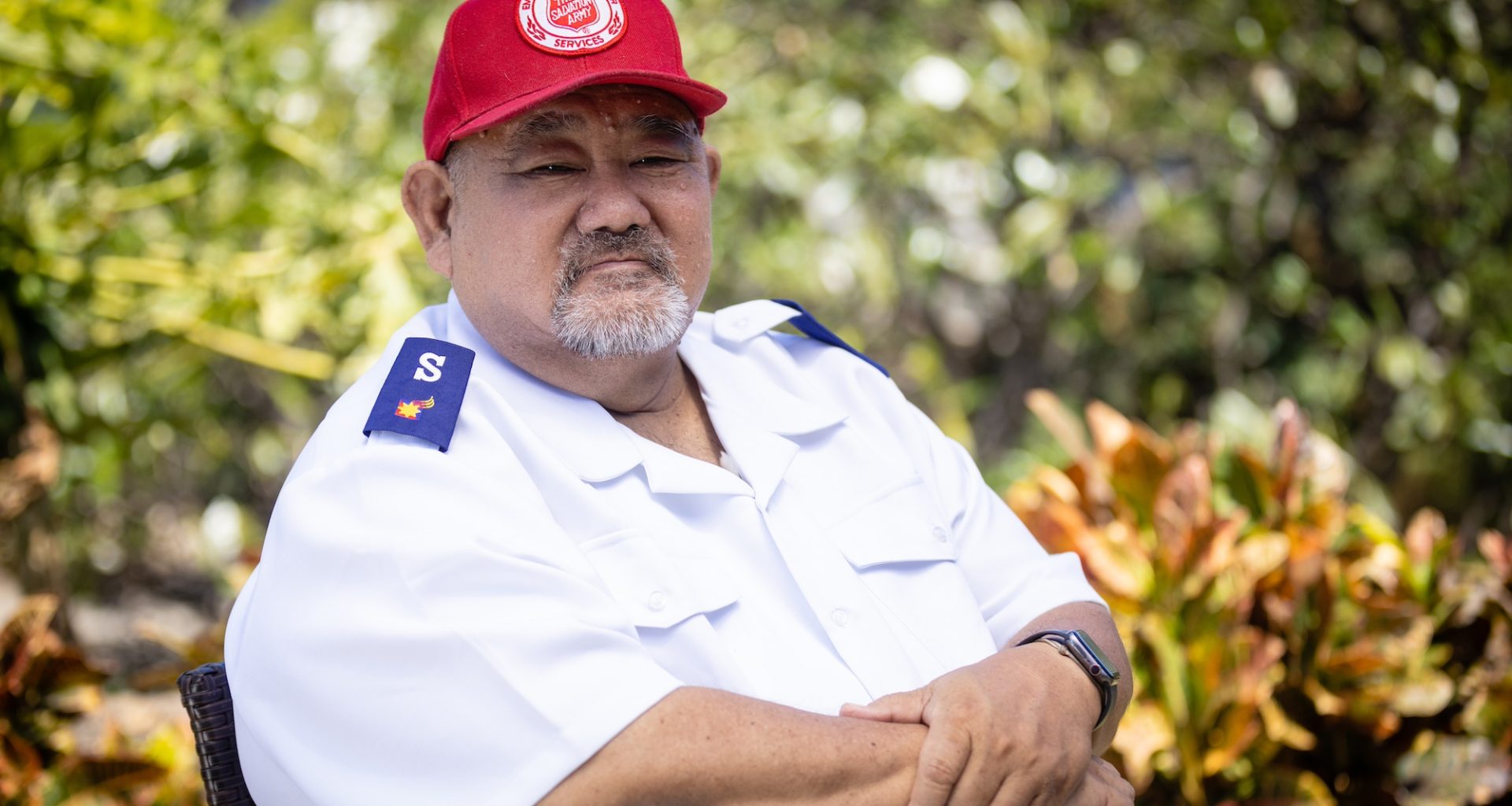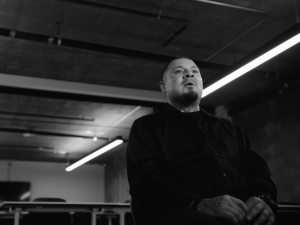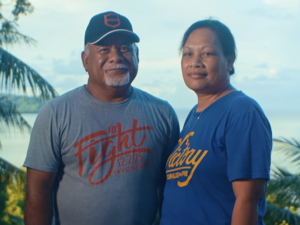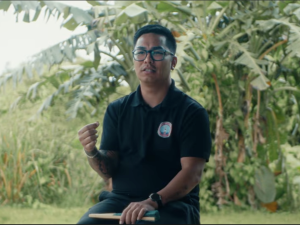On August 8, 2023, wind-whipped brush fires caused catastrophic devastation on the Hawaiian island of Maui. The historic town of Lahaina was almost completely destroyed, and 101 people were killed.
The Salvation Army’s local teams immediately leaped into action, personified by Lahaina resident Envoy Kevin Nagasaki, who lead the charge by serving and delivering meals, even though his own home and the church that he leads had both burned to the ground. But even in the face of his own loss, Kevin and The Salvation Army’s recovery efforts ended up serving or coordinating nearly a million meals to residents in need.
We take a look back, one year later, to remember the devastation and loss of August 8, and to look forward to healing and restoration.
Below is a transcript of the video edited for readability.
Envoy Kevin Nagasaki: Well, that was a typical Tuesday morning, August 8, they said there was a fire up Lahainaluna. At about 1PM the fire was already done. It was out.
Then they said another fire had started. And it was gusty. I mean, it was 70, 80, 90 miles an hour wind. There were trees down there, you know, power lines down on the road, and then all of a sudden it hit the town.
James Sahagon: It didn’t take long before it came down to where The Salvation Army was.
Envoy Kevin Nagasaki: Within 15-20 minutes, it was one street away from us. And I was fighting it with the garden hose, you know, trying to shoot it down. And once it got onto the roof of our house … it was probably God saying, you know, it’s time to leave.
James Sahagon: I had my wife’s ashes in the chapel. The back part of The Salvation Army was already on fire. I was able to get back in, took my wife’s ashes out from the chapel.
Envoy Kevin Nagasaki: We got everybody, the corps members and whatever people that was around homeless, and we said, you know, “Just jump in the truck, let’s go already.”
The corps building and the quarters were already on fire. So we went onto the top of the bypass and looked down onto the town, and it was just a big cloud of dark smoke.
James Sahagon: It kind of broke our hearts, because we thought it would never happen, you know.
Envoy Kevin Nagasaki: Everything is gone, our houses, our belongings. I mean, a lot of us that live there, lived there most of their lives, you know, and a lot of people lost their lives, 101, and basically we knew all of them.
I didn’t sleep that night because already I was thinking, “What is the next thing we’re gonna have to do?” And it was, “We’re gonna have to feed the people.”
Major Troy Trimmer: Envoy Kevin and the team, they knew that their community was in trouble, so they immediately went to the kitchen with Captains Howards and began to prepare meals for those that they knew would need some physical sustenance.
They did exactly what’s in their character to do, and they immediately looked for the first need that they could meet as The Salvation Army.
Envoy Kevin Nagasaki: So we started making meals that very next morning. We just put the stuff in a box truck. We cooked everything in a box truck. We fed the firemen, we fed everybody. We passed waters in the lines of cars.
We started off with, you know, three sites. They went to, you know, six sites, went to ten sites, and was just overwhelming, you know, we was making over 1000 meals per each one, you know.
Major Troy Trimmer: From August, when the fire hit that very first night, Salvation Army either fed or coordinated nearly a million meals.
Envoy Kevin Nagasaki: That’s what Salvation Army does. We bring the spiritual part and the meal part.
Major Troy Trimmer: Relationship is a huge part of the Hawai’i culture as a whole, which shouldn’t be surprising, because it’s actually part of the biblical culture.
Everybody knows Envoy Kevin. Immediately after this disaster, when we would go anywhere in Maui without Envoy, the first question would be, “How is Envoy Kevin?” He’s become a relational part of God’s ministry to this island for well over 26 years.
Envoy Kevin Nagasaki: Going to the different sites that were open, it made a difference because people seen me and I seen the other people, and they knew that we were alive, that we survived.
Major Troy Trimmer: On an island in the middle of the Pacific, putting together a longer term recovery plan is a little more difficult than, say, on the mainland, where you have multiple states, you have multiple resources to move people, to relocate people.
The reality is, prior to the fires, there was limited housing on Maui, and so as a result of the fires, there’s even more limited housing on Maui.
We understand this recovery is going to be a long time. We’ve, by God’s grace, begun men’s groups back again in Lahaina, and hopefully in our response, people have seen Christ.
Envoy Kevin Nagasaki: I’ll just keep on doing what I’m doing. I mean, Salvation Army is, you know, here in the community to keep it going, you know, to keep that connection.
This is going to take time to rebuild. And, you know, people say, “Oh, we’re going to rebuild it the same way.” And I said, “No, it’s not going to be the same.”
It’s going to be definitely different. But, you know, the spirit and the mission of Salvation Army is still going to be out there to meet the need, no matter what.
Do Good:
- See more videos like this in our video feed.












